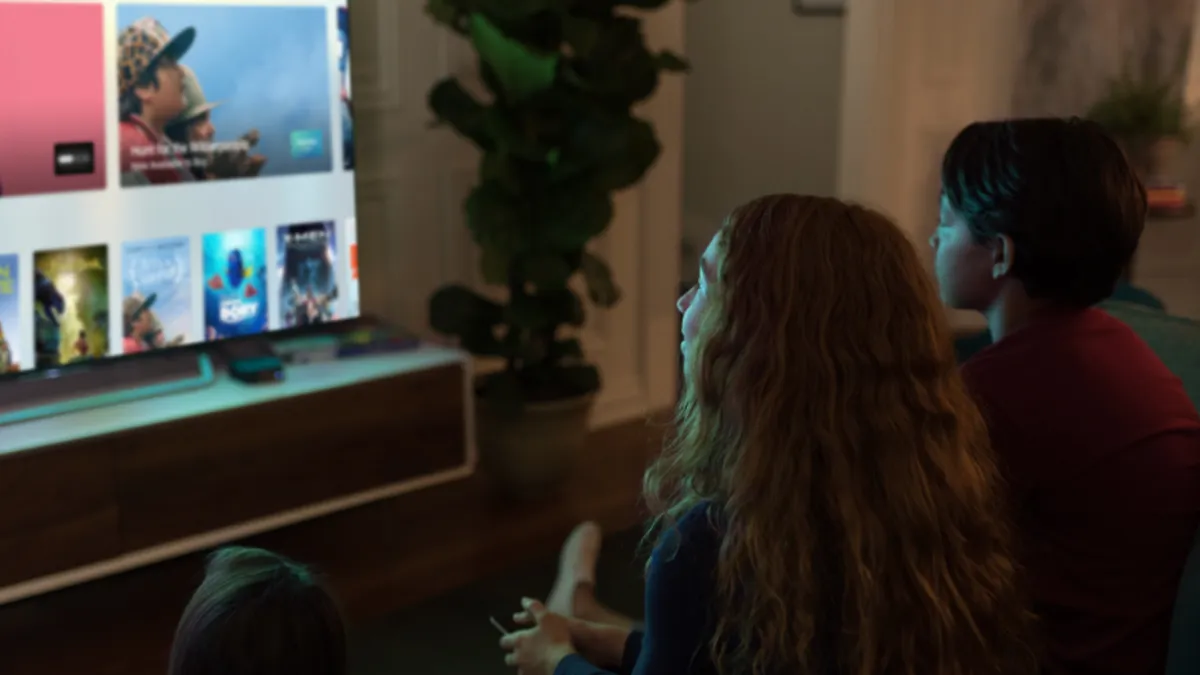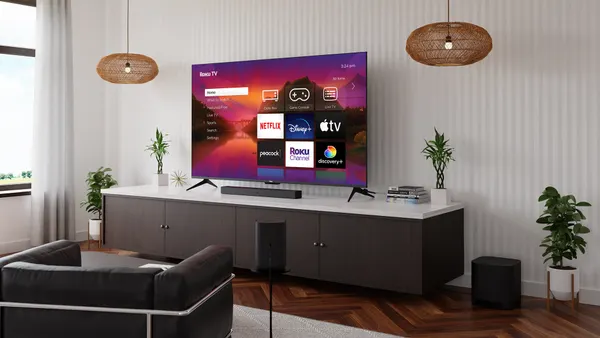Dive Brief:
- While falling TV viewership is troubling for the ad industry overall, the largest drop-off is happening among the youngest viewers in what might be an alarming trend. Nielsen C-3 ratings for 2- to 11-year-olds have fallen 50% over the last six years, according to Bernstein Research reported by MediaPost. Compounding the issue is the fact that 75% of U.S. households don't have children under 12, per U.S. Census Bureau data cited by the publication.
- Since Q4 2011, a mere two of 23 quarterly periods have shown growth with the age segment, and 11 quarters over the six-year span saw double-digit percentage decreases. Todd Juenger, a senior media analyst for Bernstein Research, told MediaPost that it's unclear whether the same amount of kids are only tuning in half as often or whether half of kids have simply stopped watching linear TV altogether. Bernstein Research speculates the latter is more likely to be true.
- Juenger suggested that pay TV providers such as cable, satellite and telco operators might balk at shelling out high carriage fees for kids' networks when viewership is rapidly declining and a large majority of U.S. households don't include young kids anyway.
Dive Insight:
TV used to be a sure bet for connecting with young audiences, between after school viewing and programming blocks like Saturday morning cartoons. Bernstein Research's findings underscore how the quick proliferation of digital video alternatives and especially YouTube over the past decade have seriously disrupted the space and might cause marketers to readjust their strategies.
Several research points flesh out Berstein's analysis. Smarty Pants LLC's recent "Brand Love" study — which surveyed kids ages 6 to 12, along with their parents — found that YouTube was named the most loved brand for the second straight year. The market for online ads directed at kids is also forecast to reach $1.2 billion by 2019, representing 28% of all ad spend put toward the demographic, according to PwC. Their report noted that under-13 consumers' attention has shifted to smartphones, tablets and computers.
These trends have turned the heads of major networks. The BBC plans to invest $44 million in children's programming over the next three years to help combat tech giants including Facebook, Amazon and Netflix with a variety of digital content.












